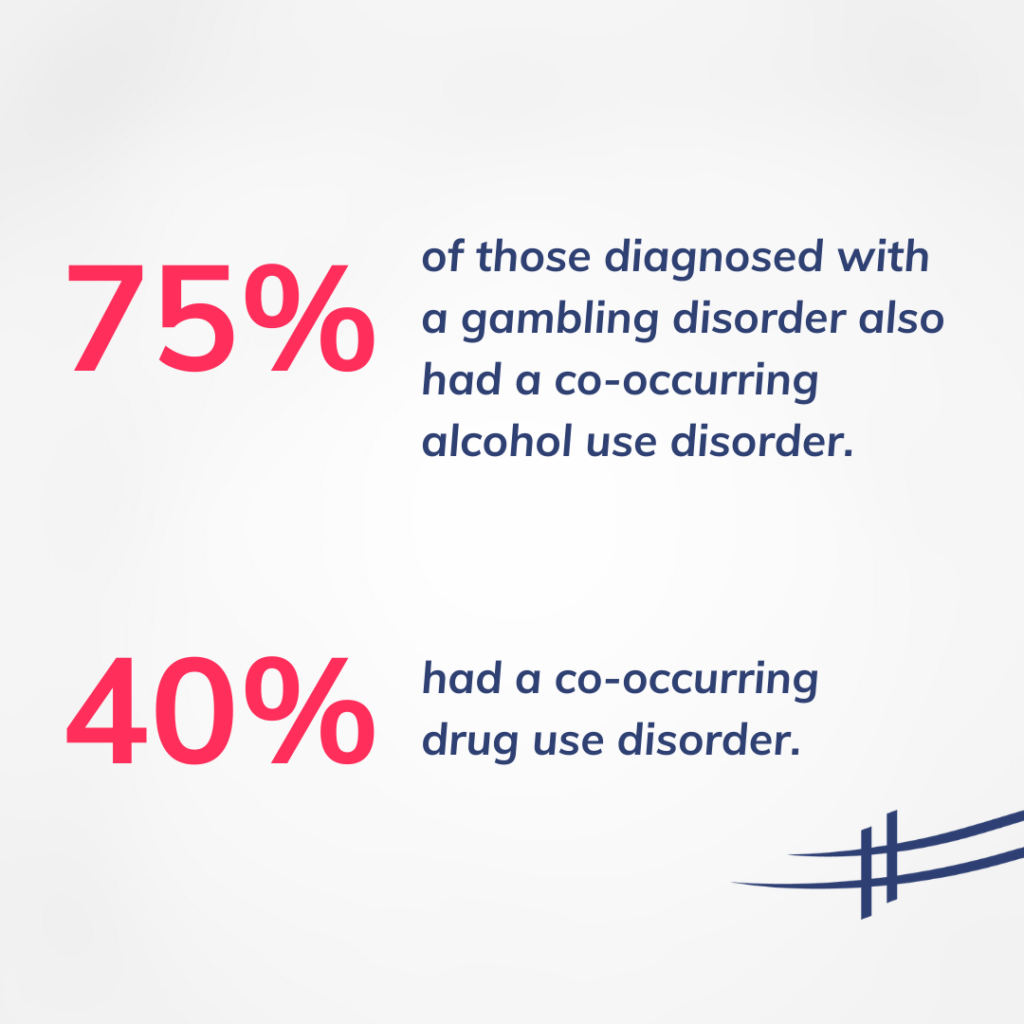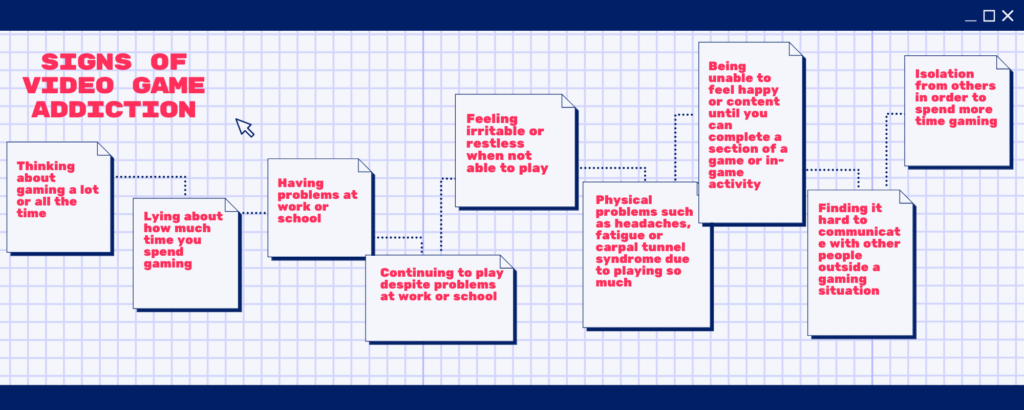The number of people gambling and gaming, and the frequency at which they do so, has undoubtedly increased during the Covid-19 pandemic. While gambling and gaming moderately is not a problem for most people, for others it can become an addiction with a negative impact on their mental health and well-being.
Gambling and gaming additions can often co-occur with other disorders which need to be addressed and treated, some as a root cause and some as a symptom. People who live with such addictions can experience depression, anxiety, feelings of despondency and helplessness among many other symptoms. Family members may also experience anxiety and stress because of their loved one’s behavior.
Gaming disorder and mental health implications

When gaming begins to interfere with everyday life, it can lead to social isolation, feelings of irritability and moodiness. The player may lose interest in outside activities, such as work and school, and struggle with motivation. This can in turn cause further stress and anxiety as family conflict may arise. Loved ones may worry about the gamer’s well-being and feel unable to help. Some parents report constantly having to tell their child to stop gaming without much success and feel as though video games are taking over their son or daughter’s life.
According to the World Health Organization (WHO), a child who plays video games for hours but eventually turns them off and resumes other activities may not have a gaming disorder or addiction. However, it is when gaming begins to interfere with family relationships, personal health or social activities, that it can lead to negative consequences and impact mental, emotional and physical health.
The WHO has defined gaming addiction as ‘a pattern of persistent or recurrent gaming behavior (digital gaming or video gaming), defined by three criteria: the lack of control of playing video games, priority given to video games over other interests and inability to stop playing video games even after being affected by negative consequences.’
There are two major types of video games and two ways in which someone can become addicted. The first type of video game is a single-player game which involves a clear goal or mission in order to reach the end or win. In these types of games, addictive behavior can result from wanting to complete the mission or beat a high score. The second type of video game involves multiple players and is played online with other people. These types of games can be especially addictive because there is no end.
Signs of video game addiction

Here are some signs to watch out for in yourself or someone close (partner, child or friend):
- Thinking about gaming a lot or all the time
- Lying about how much time you spend gaming
- Having problems at work or school because of gaming
- Continuing to play despite problems at work or school
- Feeling irritable or restless when not able to play
- Physical problems such as headaches, fatigue or carpal tunnel syndrome due to playing too much
- Being unable to feel happy or content until you can complete a section of a game or in-game activity
- Finding it hard to communicate with other people outside a gaming situation
- Isolation from others in order to spend more time gaming.
If you, or a loved one, tick some of these boxes, it is a good idea to reduce the amount of time spent video gaming. If you are unsure whether some of these symptoms apply to you, or you are having difficulty in cutting back, Kindbridge can help. Contact us to discuss your symptoms and find out about treatment options.
Problematic gambling warning signs
A gambling addiction can affect anybody at any time and consume all aspects of your life. Problem gambling is estimated to affect as many as 1% of the population and with advances in technology, gambling is now more accessible than ever. Problem gambling can be defined as ‘gambling to a degree that compromises, disrupts or damages family, personal, or recreational pursuits.’ Gambling-related harms are the ‘adverse impacts on the health and well-being of individuals, families, communities and societies.’
Gambling addiction shares many similarities with other addictions. Here are some warnings signs to look out for in yourself or a loved one.
Financial Signs:
- Missing money from bank accounts
- Betting more than you can afford to lose
- Borrowing money on a regular basis
- Frequently being short of money even though a wage is earned
- Secrecy around money matters
- Unpaid bills
- Lack of food in house.
Behavioral Signs:
- Anxiety
- Stress
- Seeming worried or agitated for no apparent reason
- Changes in eating, sleeping or relationship patterns
- Spending more time gambling
- Being secretive about unexplained absences.
Compulsive gambling – mental health and well-being
It can be difficult to spot a gambling addiction in others because people often try to hide it and may lie about their behavior or become angry when asked about it. As a result, a person may find it difficult to address the situation with a loved one or know how to help. For an individual experiencing the problem, you may find there is an element of denial or downplaying of the gambling behavior. It is very easy to reason with yourself that you do not have a problem and keep it hidden from others which can cause stress and strained relationships.
If a loved one’s behavior is described in the points above, it is best to be honest and let them know how their actions are affecting you. If you feel that your gambling is negatively affecting your personal, emotional and mental well-being, then it is a good time to take stock and talk to someone. If you would like to stop gambling, expert support and treatment are available to help you.
Get specialized help and support
Like all activities, gambling and gaming can be fun and safe if done in moderation. When they begin to affect the mental health and well-being of you and your loved ones, it is important to get professional help.
Therapy may seem daunting, especially if you have never had it before, but our specialized approach will guide you through treatment and recovery from your first contact. At Kindbridge, we can remotely diagnose and treat qualified disorders that may arise from excessive gaming or gambling and give you and your family online therapy that is accessible from anywhere. Our dedicated team of therapists can work with you and your loved ones to provide a tailored plan to fit your needs.


